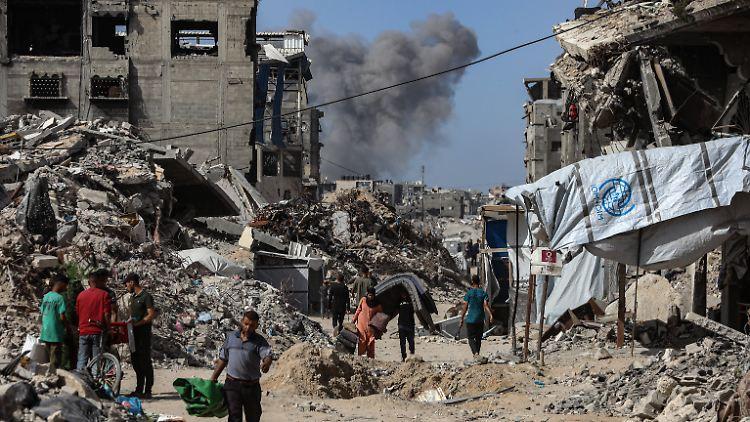Israel’s Allegations of Antisemitic Provocation in Europe Amid Rising Global Tensions
Following a devastating shooting in Washington, Israel has publicly accused several European leaders of fostering what it terms “antisemitic provocation.” Israeli officials argue that inflammatory remarks by influential European figures have contributed to an increasingly hostile environment for Jewish communities worldwide. This accusation highlights the persistent strains between Israel and various European countries, especially within the broader context of the Israeli-Palestinian conflict. The tragic event in Washington has intensified debates over political rhetoric and accountability, raising urgent questions about how discourse influences the surge in antisemitism during these volatile times.
Examining Israel’s Claims: Antisemitism and Political Rhetoric Across Europe
In response to the recent violence in Washington, Israeli authorities have sharply criticized Europe for what they perceive as a failure to adequately confront antisemitic attitudes embedded within political dialogue. They contend that this negligence has indirectly fueled hostility toward Jewish populations globally. Recent months have seen a marked rise in anti-Jewish incidents across multiple European nations—statistics from 2023 indicate over 1,200 reported cases of antisemitic attacks or threats throughout Europe alone.
The Israeli government points to specific examples where politicians and public personalities allegedly used language that could incite hatred or violence against Jews. Key concerns include:
- The alignment between extremist groups and antisemitic messaging.
- An uptick in demonstrations promoting anti-Jewish ideologies.
- Lack of enforcement against hate speech within political forums.
Jewish advocacy organizations across Europe echo these worries, emphasizing solidarity among nations as essential to countering this growing menace. While some governments have enacted stricter laws targeting hate crimes and speech—such as Germany’s recent amendments enhancing penalties for online hate content—critics argue that legislative efforts must be paired with comprehensive social initiatives addressing underlying prejudices.
The Global Surge of Antisemitism: Underlying Causes and Wider Consequences
The accusations from Israel serve as a catalyst for broader reflection on the alarming increase in antisemitism worldwide. Experts note that such incidents are symptomatic of deeper societal fractures exacerbated by divisive politics and misinformation campaigns proliferating online. Several factors contribute significantly to this trend:
- Heightened Political Polarization: Societies fractured along ideological lines often see extremist views gaining traction at both ends of the spectrum.
- Digital Amplification: Social media platforms facilitate rapid spread of hateful narratives with limited oversight; studies show a 40% increase since 2020 in flagged antisemitic content on major networks like Facebook and Twitter.
- Denying Historical Atrocities: Efforts by some groups to minimize or distort events such as the Holocaust undermine collective memory and fuel prejudice.
| Region | Total Reported Incidents (2023) | Main Government Actions Taken |
|---|---|---|
| Europe | 1,200+ | Tightened monitoring & legal reforms targeting hate speech online |
| North America | 650+ | Civil society engagement & community resilience programs |
| Mediterranean & Middle East | 400+ td >< td >International condemnations & diplomatic pressure td > tr > tbody > table > This data underscores disparities between incident rates and governmental responses globally, highlighting areas where more robust action is needed urgently. Tackling Hate Speech: Strategies for Building Resilience Within European CommunitiesThe allegations made by Israel spotlight an urgent call-to-action aimed at curbing hateful rhetoric before it escalates into violence. A multi-pronged approach involving policymakers, civil society actors, educators, media outlets, and technology companies is critical for meaningful progress:
|

